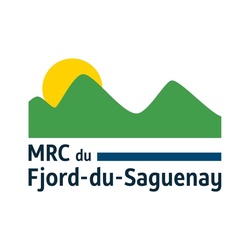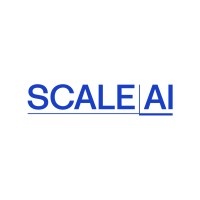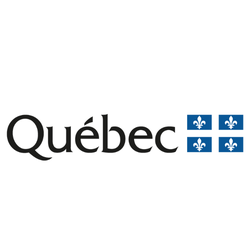
MRC Fjord-du-Saguenay — Local FLI/FLS funds
At a glance
- Maximum amount : 150,000 $
- Up to 50% of project cost
- Open Date : July 9, 2024
- Manufacturing
- Professional, scientific and technical services
- Health care and social assistance
- Other services (except public administration)
- Public administration
- Saguenay
- Non-profit
- Public or Parapublic institution
- For-profit business
- Social economy enterprise
- Non-financial cooperative
- All revenue ranges
- All organization sizes
- Startups
- Environment
- Economic, Social and Community Development
- Employment and Training
- Business Associations
- Rural / Remote communities
- Business owners / entrepreneurs
- Nonprofits / charities
- Mixed revenue (50%+ earned)
- Regional
Overview
The FLI/FLS Investment Policy aims to invest in Quebec-based businesses to bolster their development and create or maintain jobs, offering maximum funding amounts of $150,000 for FLI and $100,000 for FLS per enterprise. Eligible activities include business start-up, improvement and transformation, growth and expansion, entrepreneurial succession, and funding for short-term needs or restructuring efforts.
Activities funded
The MRC Fjord-du-Saguenay Local FLI/FLS funds are designed to support a variety of entrepreneurial projects, focusing on business development and economic growth. These funds particularly aim at enhancing productivity, supporting business continuity and expansion, and fostering sustainable business practices in the regional economy.
- Support for the start-up phase of businesses until they achieve profitability.
- Funding for individuals or groups taking over an existing business to ensure business continuity.
- Financial assistance for companies acquiring other businesses to grow operations.
- Investments in upgrading productivity, digital transformation, and implementing sustainable practices.
- Projects aimed at expanding business operations, including the introduction of new products or services and entering new markets.
- Temporary financing in anticipation of confirmed income sources.
- Support for businesses undergoing temporary financial setbacks but showing recovery potential.
Eligibility
Eligible companies for this grant must meet the following criteria:
- Companies must be for-profit entities legally constituted under Quebec or Canadian laws, or collectively owned enterprises (cooperatives and non-profits) as defined by the Act on Social Economy, engaging in commercial activities.
- The enterprise must operate within the MRC's territory and have its headquarters in Quebec.
- It must be registered with the Quebec Enterprise Register (REQ).
- For FLS support, social economy companies must comply with Annex "A" conditions, but FLI can invest alone in companies that do not meet one or more conditions in Annex "A".
Who is eligible?
Eligible applicants for the FLI/FLS investment policy include legally constituted for-profit enterprises under Quebec or Canadian law, as well as collective enterprises such as cooperatives and non-profit organizations (NPOs) operating as social economy enterprises within the meaning of the Social Economy Act.The eligibility criteria include:1. Location and Registration: - Must operate within the MRC's territory. - Must be registered at the Quebec Business Register (REQ). - Must have its head office located in Quebec.2. Eligible Enterprises: - Legal for-profit entities and social economy enterprises conducting commercial activities. - Social economy enterprises must meet specific conditions outlined in Annex A, including characteristics such as democratic governance, priority given to people over capital, collective control, and impactful local development.3. Eligible Sectors: - Enterprises from sectors aligned with MRC’s priorities.Sections 3.3 details non-eligible applicants who are excluded based on criteria such as non-compliance with public contract registers, governmental ownership, bankruptcy protection, unethical behavior, environmental non-responsibility, and other specific sector exclusions. Additionally, projects not supported include those involving arms production, fossil energy, gambling, violent games, sexual exploitation, real estate management, and some drug-related services, unless falling within specified exceptions for cannabis and industrial hemp.
Who is not eligible
This grant excludes certain companies and industries due to their status or main activity. The restrictions aim to ensure that funds are directed toward sectors that align with sustainable and ethical practices, as well as to ensure financial prudence.
- Companies listed in the Register of enterprises ineligible for public contracts (RENA), including contractors associated with them.
- Applicants that have failed to meet obligations related to previous financial aids within the last two years after a formal notice.
- State-owned enterprises or those controlled by municipal, provincial, or federal governments, or entities majority-owned by such companies.
- Entities under protection from the Companies' Creditors Arrangement Act or the Bankruptcy and Insolvency Act.
- Companies with unethical behaviors affecting the integrity or reputation of the government.
- Businesses with non-compliant environmental practices according to applicable laws.
- Those with a history of violating labor standards or human rights legislation.
- Companies involved in the production or distribution of armaments.
- Entities related to fossil fuel activities except for transition projects.
- Organizations engaging in gambling activities like casinos and bingo halls.
- Firms involved in violent games or sports involving combat with any living species.
- Businesses in the sex industry, like erotic bars or adult entertainment.
- Real estate management and development, barring certain exceptions for tenant services.
- Enterprises linked to the tobacco or drug consumption industry, with certain exceptions for cannabis and industrial hemp under strict criteria.
- Cannabis industry projects related to recreational use or non-approved medical products.
Moreover, financial aid under this grant should not be utilized for payments benefiting ineligible entities.
Eligible expenses
The eligible expenses for this grant are detailed with specific attention to funding requirements and circumstances.
- The need for additional working capital compared to current expenses, necessary for implementing the company's project for a maximum period of two years, which includes the project year and the following year, based on justified and reasonable expenses.
- Capital expenditures strictly and directly related to the company's project implementation, such as acquiring technology, land, buildings, equipment, machinery, and rolling stock, as well as construction, expansion, renovation, landscaping, and fitting out premises and fields.
- Professional fees preliminary to the company's project implementation, such as feasibility analysis, external audit, or impact study.
- Professional fees strictly and directly related to the company's project implementation, such as the implementation of technology, equipment and machinery, as well as acquisition, construction, renovation, and landscaping of fields and premises.
- Entrepreneurial succession projects can include purchases of ownership shares (voting shares or parts) and assets of the targeted company.
- Professional fees strictly and directly related to the transaction and acquisition of the company, as well as the transfer of the company's management.
Eligible geographic areas
This grant is territorially restricted to companies operating within a designated area in Quebec, Canada. Eligible locations are determined by their presence within this specific MRC region, aligning with local economic development policies.
- Companies must operate on the territory of the MRC du Fjord-du-Saguenay.
- Businesses should have their head office located in Quebec.
Selection criteria
The evaluation and selection of projects for this grant focus on several key criteria designed to assess the viability and impact of proposed initiatives on both economic and social levels.
- Economic viability and sustainability of the funded enterprise. The project should demonstrate prospects of ongoing profitability and repayment capacity.
- Promoters' knowledge and experience, highlighting the expertise and relevant background in their field as well as managerial skills.
- Environmental and societal impacts, emphasizing contributions to improving the socio-economic and environmental landscape through sustainable business practices.
- Openness towards workers, considering the company's approach to employee relations and workplace environment.
- Involvement of other financial partners, showing the presence of additional capital sources such as financial institutions or promoters' equity contributions.
- Impact on fund sustainability, ensuring that the investment aligns with the self-financing objectives of the local funds.
How to apply
Preparation of required documents
- Complete the financial aid application form.
- Prepare the business plan or detailed project description.
- Develop a detailed breakdown of the project-related expenses.
- Establish the financial structure of the project with confirmation of other financial aids.
- Provide the financial statements for the last three years.
- Submit interim financial statements if required.
- Prepare the projected financial statements.
- Attach a declaration or certificate of francisation if applicable.
- Include the Employment Equity Access Program if applicable.
- Add any other documents required by the MRC.
Submission of the file
- Transmit all prepared documents to the managing entity.
- Ensure that the documents are complete and comply with the requirements.
Confirmation of receipt
Additional information
Here are additional relevant details for this grant:
- The partnership between FLI and FLS involves utilizing a combined loan contract with differentiated interest rates for each fund.
- Pre-startup projects are excluded from funding, with eligibility beginning at the commercialization stage.
- The loan moratorium on capital and/or interest is determined by the project type, with specific durations provided.
- The maximum total repayable funds for any single enterprise under the FLI is $300,000, with specific restrictions on government aid combinations.
- Interest rates are determined by a risk analysis and may include a risk premium, amortization premium, and deduction for secured loans.
- Enterprises must meet high integrity standards to qualify and enjoy continued financial support.
Frequently Asked Questions about the MRC Fjord-du-Saguenay — Local FLI/FLS funds Program
What is the MRC Fjord-du-Saguenay — Local FLI/FLS funds?
How much funding can be received?
Who is eligible for the MRC Fjord-du-Saguenay — Local FLI/FLS funds program?
What expenses are eligible under MRC Fjord-du-Saguenay — Local FLI/FLS funds?
Where is the MRC Fjord-du-Saguenay — Local FLI/FLS funds available?
Is the MRC Fjord-du-Saguenay — Local FLI/FLS funds a grant, loan, or tax credit?
Who are the financial supporters of the MRC Fjord-du-Saguenay — Local FLI/FLS funds?
More programs like this

PSCE – Component 2
Investissement Québec (IQ)
MAPAQ — Food Processing Program — Component 2
Ministry of Agriculture, Fisheries and Food (MAPAQ)
SCALE AI — Acceleration
Scale AI Cluster
Development of E-Business Tax Credit (CDAE)
Investissement Québec (IQ)
Research, Innovation and Commercialization Tax Credit (CRIC)
Gouvernement du Québec
Support for biofood exports - individual projects
Ministry of Agriculture, Fisheries and Food (MAPAQ)
ÉcoPerformance — Recommissioning of building mechanical systems
Gouvernement du Québec
Individual Market Access Support (SIAM)
Aliments du Québec
Panorama Program
Investissement Québec (IQ)